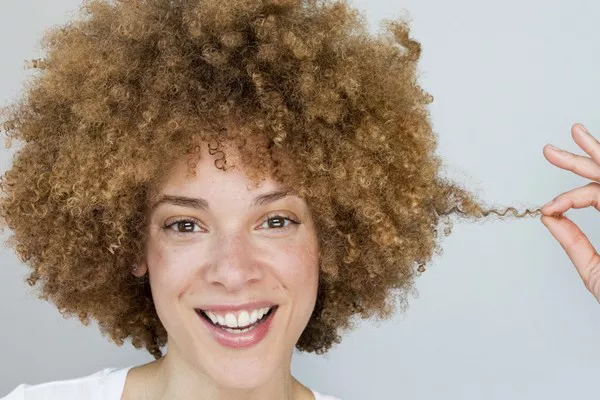Afro hair, also known as textured or kinky hair, requires special care and attention to maintain its health and vitality. Washing Afro hair is a crucial part of a hair care routine, but determining how often to wash it can be influenced by various factors, including hair type, scalp condition, lifestyle, and styling preferences. In this article, we’ll explore the recommended frequency for washing Afro hair and provide insights into factors that may affect your washing routine.
Understanding Afro Hair:
Hair texture: Afro hair is characterized by its tightly coiled or kinky texture, which can range from fine to coarse.
Scalp condition: Consider the condition of your scalp, as issues such as dryness, dandruff, or oiliness may influence your washing frequency.
Hair porosity: Afro hair tends to have high porosity, meaning it can absorb and lose moisture quickly. Understanding your hair’s porosity can help determine how often you need to wash it to maintain moisture balance.
Recommended Washing Frequency:
Low manipulation styles: If you wear low manipulation styles such as braids, twists, or protective styles, you may only need to wash your Afro hair once every 1-2 weeks to remove buildup and maintain scalp health.
Active lifestyle: If you lead an active lifestyle or engage in regular exercise that causes sweat and dirt buildup, you may need to wash your hair more frequently, such as once a week or every few days.
Co-washing: Co-washing, or washing with conditioner only, can be an effective way to cleanse Afro hair without stripping away natural oils. Co-wash as needed between regular shampoo washes to refresh your hair and scalp.
Dry shampoo: Dry shampoo can be a convenient option for extending the time between washes and absorbing excess oil and sweat from the scalp.
Factors Influencing Washing Frequency:
Product buildup: The use of styling products such as gels, creams, and oils can lead to product buildup on the scalp and hair, necessitating more frequent washing to remove residue.
Environmental factors: Environmental factors such as pollution, humidity, and exposure to hard water can affect the cleanliness and health of Afro hair, potentially necessitating more frequent washing.
Scalp condition: If you experience scalp issues such as dandruff, itchiness, or irritation, you may need to wash your hair more frequently to address these concerns and maintain scalp health.
Styling preferences: Your preferred hairstyles and styling techniques may influence how often you need to wash your Afro hair. For example, frequent use of heat styling tools or chemical treatments may require more frequent washing to prevent damage and maintain hair health.
Signs You’re Washing Too Often:
Dryness and breakage: Washing your Afro hair too frequently can strip away natural oils, leading to dryness, brittleness, and breakage.
Scalp irritation: Overwashing can irritate the scalp, causing itchiness, redness, and flakiness.
Excess oil production: Paradoxically, washing your hair too often can stimulate the scalp to produce more oil, leading to a cycle of greasiness and frequent washing.
Signs You’re Not Washing Often Enough:
Oily scalp and hair: If your scalp and hair feel consistently greasy and look visibly oily, you may not be washing your Afro hair frequently enough to remove buildup and sebum.
Itchiness and odor: A buildup of sweat, dirt, and oil on the scalp can lead to itchiness and unpleasant odor, indicating the need for more frequent washing.
Dry, flaky scalp: If you experience dryness, flakiness, or scalp irritation, you may need to wash your Afro hair more often to remove dead skin cells and maintain scalp health.
Conclusion:
Determining how often to wash Afro hair depends on various factors, including hair type, scalp condition, lifestyle, and styling preferences. While there is no one-size-fits-all answer, following general guidelines and paying attention to the signs your hair and scalp are giving you can help you establish a washing routine that promotes cleanliness, scalp health, and hair vitality. By understanding your hair’s unique needs and adjusting your washing frequency accordingly, you can maintain beautiful, healthy Afro hair that looks and feels its best.
In conclusion, finding the right balance for washing Afro hair is essential for maintaining scalp health and hair cleanliness. By considering factors such as hair texture, scalp condition, lifestyle, and environmental factors, you can establish a washing routine that meets your hair’s needs and promotes overall hair health. So, listen to your hair, pay attention to the signs it’s giving you, and adjust your washing frequency accordingly to keep your Afro locks looking fresh and fabulous.

